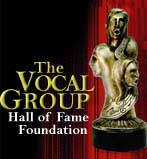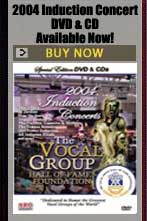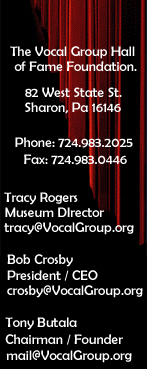| |
'Truth In Music' crusade gaining steam
.
Last week, Jon “Bowzer” Bauman and his group, Bowzer and the Stingrays, played in Connecticut; Hershey, Pa.; and Idaho. Between gigs, he was in Washington researching trademark law and in New Jersey conferring with an attorney about a federal lawsuit.
Bauman, formerly of Sha Na Na, admits his wife back home in Los Angeles probably wonders where he is half the time.
But Bauman is on a crusade to end so-called knockoff groups that go by a famous name — most often the Platters, Drifters or Coasters — without having the right to use those names.
With politicians starting to turn an ear to Bauman’s pleas, he wants to capitalize on the good will.
“We know we have to take advantage of the momentum we have,” Bauman said Monday at the Vocal Group Hall of Fame in Sharon.
Bauman is not the first nor the only person working on this crusade, but chairs the vocal hall’s Truth in Music Committee, which is seeking to have laws passed in all 50 states, and a federal law enacted.
Bauman said he started meeting some of the most victimized artists, including Carl Gardner of the Coasters and Charlie Thomas of the Drifters, on the Sha Na Na television show, which ran from 1977 to 1981.
When he left Sha Na Na and toured with his own groups, Bauman sometimes was packaged with groups going by a famous name but not including any of the original members. Those groups claimed they had the rights to use the names.
“They really didn’t have the rights,” he said. “It’s just a scam.”
Bauman started researching the issue and found there is little legal protection for music groups. Trademark law is designed for tangible products, he said.
“In musical groups, people are the product and there is constant turnover,” Bauman said. “Trademark law doesn’t do a good job in protecting the people and the music.”
The courts haven’t been that helpful, often delivering conflicting decisions, said Bauman, who came to town for a fundraiser for state Sen. Robert D. Robbins, R-50th District, Salem Township.
The Platters have been the subject of about 30 court cases, and Herb Reed, the lone original member still performing, is still fighting the battle.
One of the first things Bauman did was to put a clause in his performance contract stating he will not perform with knock-off groups, and that if one is hired without his knowledge, he has the right not to perform. He said many other performers have followed suit.
The Truth in Music Committee has come up with a bill it believes could eliminate the problem. The bill passed its first state, Pennsylvania, earlier this year.
The Truth in Music Advertising Act outlaws advertising of a live music performance or production “through the use of a false, deceptive, or misleading affiliation, connection of association between a performing group or a recording group.”
Illinois and Connecticut also have passed the law, and Bauman predicts the legislation could be enacted in as many as dozen states by the end of the year.
Bauman said his role often is explaining the music business to lawyers, who generally don’t understand it.
“I’m not a lawyer but I play one on TV,” he quipped. “I have a lot of practical experience with how our business works and a I have a lot of legal aptitude.”
The Attorney General’s office has been involved in the first two enforcement actions in northeastern Pennsylvania, both of which resulted in settlements. The concerts were rebilled as tributes to name groups. Bauman said he supported both settlements because the shows were booked before the law went into effect.
The Attorney General is investigating an Aug. 30 Grange fair concert in State College, he said.
He said venues are truly victims of knock-off groups because they rely on agents and promoters to bring them shows that will draw well, but also conform to applicable laws.
As the Truth in Music laws come onto the books, Bauman’s focus will shift to education. He plans to attend conventions and other gatherings of music industry professionals to explain the problems of knock-off groups and how they can be avoided.
Bauman said he expects the managers of theaters and other venues will end up making the law work.
“They don’t want to get that call from the attorney general,” he said
|











